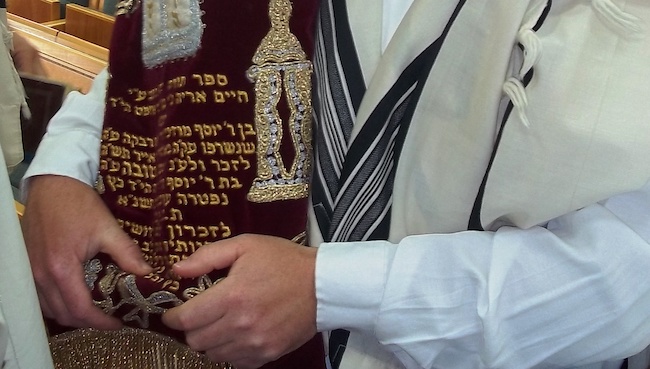And I will establish my covenant with you; never again will all flesh be cut off by the waters of the flood. There will never again be a flood to destroy the earth. (Bereshith 9:11)
The prophet Yeshiah spoke with Divine inspiration when he said, “For I have sworn as I swore regarding the waters of Noach.”(1) However, the Torah makes no explicit mention of an oath when God promised never again to flood the earth. From the prophet’s words, Rav Eliezer derives that even if one only says “yes” or “no” it is considered an oath. Rav argues that it is considered an oath only “if the words are repeated twice [i.e., ‘yes, yes’ or ‘no, no’].”(2)
How literally should this be taken? Is it true that every time someone says “yes” or “no” he is bound by an oath? The halachah is that one is only bound by an oath if he specifically intended to make an oath when he said “yes” or “no.”(3)
Although one can only transgress the prohibition of making an oath if one speaks, the extremely righteous consider even the slightest sign of agreement as if they had taken a vow, as illustrated in the following story.
The Rav of Byalistok once asked Rav Akiva Eiger if he would respond to all of his halachic inquiries by mail. It was a very time-consuming undertaking, and Rav Akiva Eiger’s schedule was more than filled by his duties as Rav of Posen. Nevertheless, he answered every letter that the Rav of Byalistok sent him. When he was asked why he devoted so much time to answering these letters, which proved to be a great burden for him, he responded that when the Rav of Byalistok had posed his request, Rav Akiva Eiger had nodded his head in agreement. He feared that in doing so he had committed himself with an oath, which he was determined to fulfill, no matter how difficult it was.(4) Rav Akiva Eiger did not say, “Yes, yes”; he did not even say the word “yes” once, but only motioned with his head. Still, since he had indicated that he consented to the Rav’s request, although he had not done so verbally but only through body language, he felt bound by his commitment. In accordance with his very high level of righteousness, had he not answered the Rav’s letters he would have been liable for sheker as well as for swearing falsely.(5)
1. Yeshiah 54:9.
2. Shavuoth 36a.
3. Rosh 4:27, Shulchan Aruch Yoreh De’ah 237:5. However, if one reinforces a statement using a kinui (literally, “a nickname”) of God, it is considered an oath even if he did not explicitly intend for it to be so [ibid. 237:10].
4. Responsa Bigdei Yasha, Even Ha’Ezer, p. 32.
5. Sefer Chasidim, p. 47.
Text Copyright © 2006 by Rabbi Daniel Travis and Torah.org


